This E3, new-gen finally found its voice, and (nearly) everyone's future is bright
It’s been a long-held - and entirely accurate - conceit that this new console generation has taken an inordinate amount of time to take off. The early proliferation of cross-generation releases certainly kept the new hardware on bricks for a while. The ongoing influx of ‘HD’ remakes hasn’t exactly changed that, simply swapping out ‘games you can also buy for your old machine’ for ‘games you already own for your old machine, but made notably prettier to justify a double dip’. The end result has remained the same. New consoles that are a different shape to to the old ones, but experientially not that different.
But for me, there’s been another factor at play. A quieter, less tangible one, but one just as, if not more, powerful. Since launch, the new machines’ corporate parents have been flailing to find an identity and sense of direction for their fledgling consoles. We’ve known of these machines’ technical capabilities, but we haven’t really known their purpose, not in terms of the culture or intent behind them. Not until now, anyway. Because the great thing about E3 2015, the best thing, in fact, is that the Xbox One and PlayStation 4 are no longer vague, interchangeable concepts. They’re specific platforms, with specific, unique mindsets, fueledby the drive to deliver two distinct, deliberate suites of experiences.
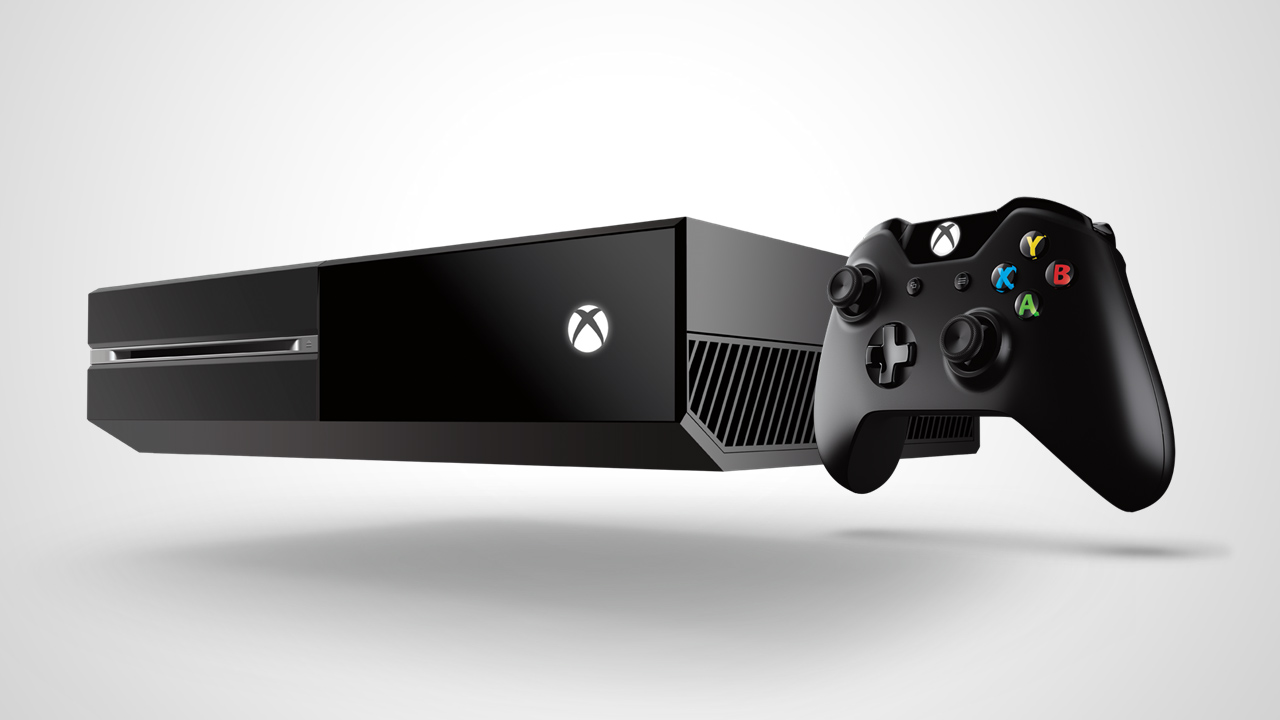
Microsoft has had the hardest time consolidating an identity, precisely because it was so sure – right from the Xbox One’s announcement – that it had a very specific one locked in and ready to go. When that persona and outlook turned out to be hideously miscalculated, a total reboot was required, one that has taken two years to realise. That kind of turn around isn’t quick or easy for a global, consumer-facing company with as many moving parts as Microsoft. The removal of a division president, a radical shift in focus from multimedia entertainment to games, a new public personality, carefully straddling confidence and open, communicative humility… You don’t make all that happen in a weekend, and during the transition, Microsoft’s identity and values were understandably tricky to pin down. And even harder to entirely trust, given its bolshie public conduct before the rapid change in direction.
Sony came out of the gates with a much clearer, much more relatable mind-set. ‘This is for the players’. It couldn’t have been less ambiguous. And people liked it. But in direct contrast to Microsoft - who started out almost universally derided, before gradually shuffling the pieces into a much more palatable and appealing configuration, building goodwill methodically out of an ever-strengthening line-up – Sony’s golden launch began to gleam less brightly once the momentum of its likability gave way to concerns about the actual substance of its first-party offering.
The Order took a while to arrive, and was flashy but resolutely superficial bunk, a game that provided a rather uncomfortable metaphor during a period of doubt as to the true worth of the company’s output behind its well-judged message. Bloodborne is one of the finest crafted games since, well, Dark Souls, but certainly isn’t for everyone. After that? A delayed Uncharted 4, leading to the PS4’s third Christmas in a row propped up by third-party releases and indie games.
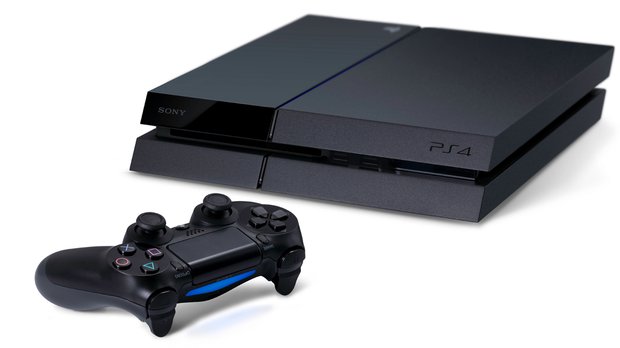
But this E3? Finally, things have started to settle and consolidate, both companies firmly cementing satisfyingly individual, reassuringly definite values with a great deal of confidence. The fact that these proclamations themselves have been made via such radically different means only heightens my confidence in each platform-holder’s sense of direction.
Microsoft, playing against the type of its early-generation arrogance, has dropped the misfiring desire to be all things to all people (by way of new innovations that truly satisfy no-one), and instead seems to have made peace with what it does well, embracing its western-centric, core gamer focused Xbox 360 glory days by way of a promising 2.0 version. The unspoken message was obvious: If you were in your mid-to late teens in 2005, and loved Xbox, the Xbox One is going to be a continuation. Welcome back. New Gears of War? Happening. New Forza? Here it is. New Halo? Of course. Like Rare? Have nearly the whole back catalogue, and a classically colourful, inventive new pirate game to boot.
Weekly digests, tales from the communities you love, and more
It’s very telling that two of Microsoft’s biggest focuses were centred on the old rather than the new. Backward compatibility with Xbox 360 games became one of the conference’s biggest take-aways, the Xbox One earning immense goodwill by way of a new, tangible link to its beloved precursor. And the Gears of War remaster is telling, of both Microsoft’s direction and chosen audience. Where its competitors’ showboating re-releases consist of two, even three generation-old highlights of the Japanese heyday, and esoteric, under-appreciated cult hits, Microsoft’s definition of a classic is an unapologetically ballsy, mainstream-courting, nine year-old tour de force of technical polish and blockbuster violence. That’s Microsoft’s definition, because that the kind of game the Xbox’s class of ’05 was founded on. It knows its crowd.
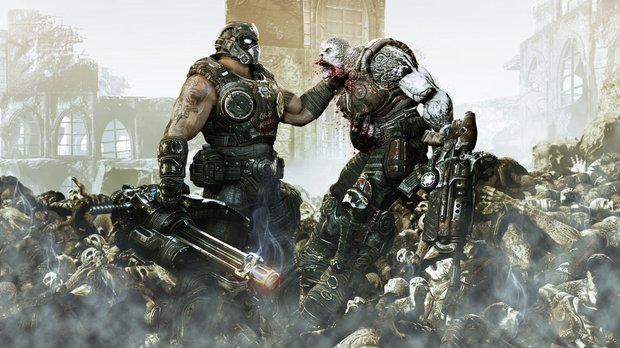
Conversely, Sony is now pitching very clearly toward a slightly different, but just as specific player. If Microsoft sold reassurance to those craving big, bombastic thrills, Sony’s conference laser-targeted the slightly older, more nostalgic, more eccentrically minded gamer. That three-hit combo of Final Fantasy 7, Shenmue 3, and The Last Guardian. Good Lord, that was a powerful salvo, and one aimed with a single, very specific intent. To blow a crater in any doubt about Sony’s creative, craft-minded credentials and set up an unambiguous home for the more self-appointedly puristic, eclectic player.
Indeed, it was actually the culmination of a strategy the company has been quietly running for a while now. While the PS4 may have lacked mega-ton, self-produced crowdpleasers thus far, Sony has been conspicuously hoovering up niche, but passionately adored, well-respected series and their associated communities. Bloodborne was an obvious (and successful) grab at the Dark Souls crowd. Street Fighter 5’s exclusivity was an unimaginable, but strategically canny move in the same direction. The ongoing brand association with Destiny has been rewarding too, grabbing lapsed Halo fans and pathologically addicted, long-term grinders alike.
The big, first-party, mainstream hits will come eventually, but in the meantime Sony is painting itself in all the connoisseur kudos is can get. And it’s working. While Sony’s true level of association with two of the aforementioned is currently debatable – as are their eventual release dates - the loyalty bought by the announcement of that ‘impossible’ trinity will remain unswerving for years.
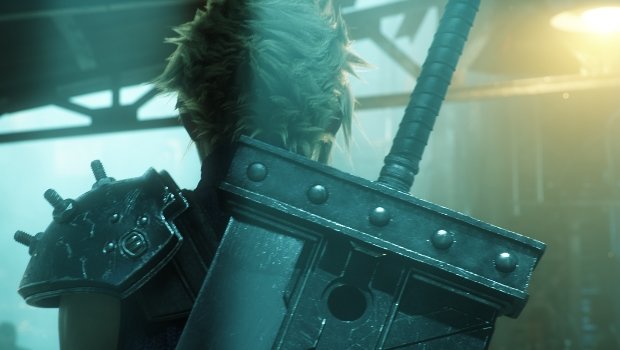
Only Nintendo’s status now proves problematic, though perhaps only because the company is queuing up a rebirth of its own. With a staunch focus on 3DS games, Amiibo, and Muppet-based tomfoolery, Nintendo’s E3 Direct broadcast felt for all the world like an implicit admission of the troubled Wii U’s imminent end. With no new games announced, and chief representation by way of only Star Fox, Super Mario Maker, and Xenoblade Chronicles X (appearing at its third E3, and still six months from a western release), the Wii U’s fate seemed sealed by talk of (talk of) its successor, the NX, and the non-appearance of last year’s stand-out Zelda game. I can’t help but be suspicious of how close that might now put the release dates of said game and new machine. Remember when Twilight Princess was announced as a Gamecube game?
With the Direct earning the first notable backlash in years from Nintendo’s usually fiercely loyal fanbase, it seems that the Wii U’s short, disastrous life has taken its toll, leaving the company’s place and purpose uncertain at an awkward point, just as its competitors are really finding their voices. But perhaps things aren’t as bad as they look. There’s every chance that the fully justified disenfranchisement and neglect Wii U owners are feeling is an unavoidable side-effect of Nintendo admitting that it’s time to move on and try again.
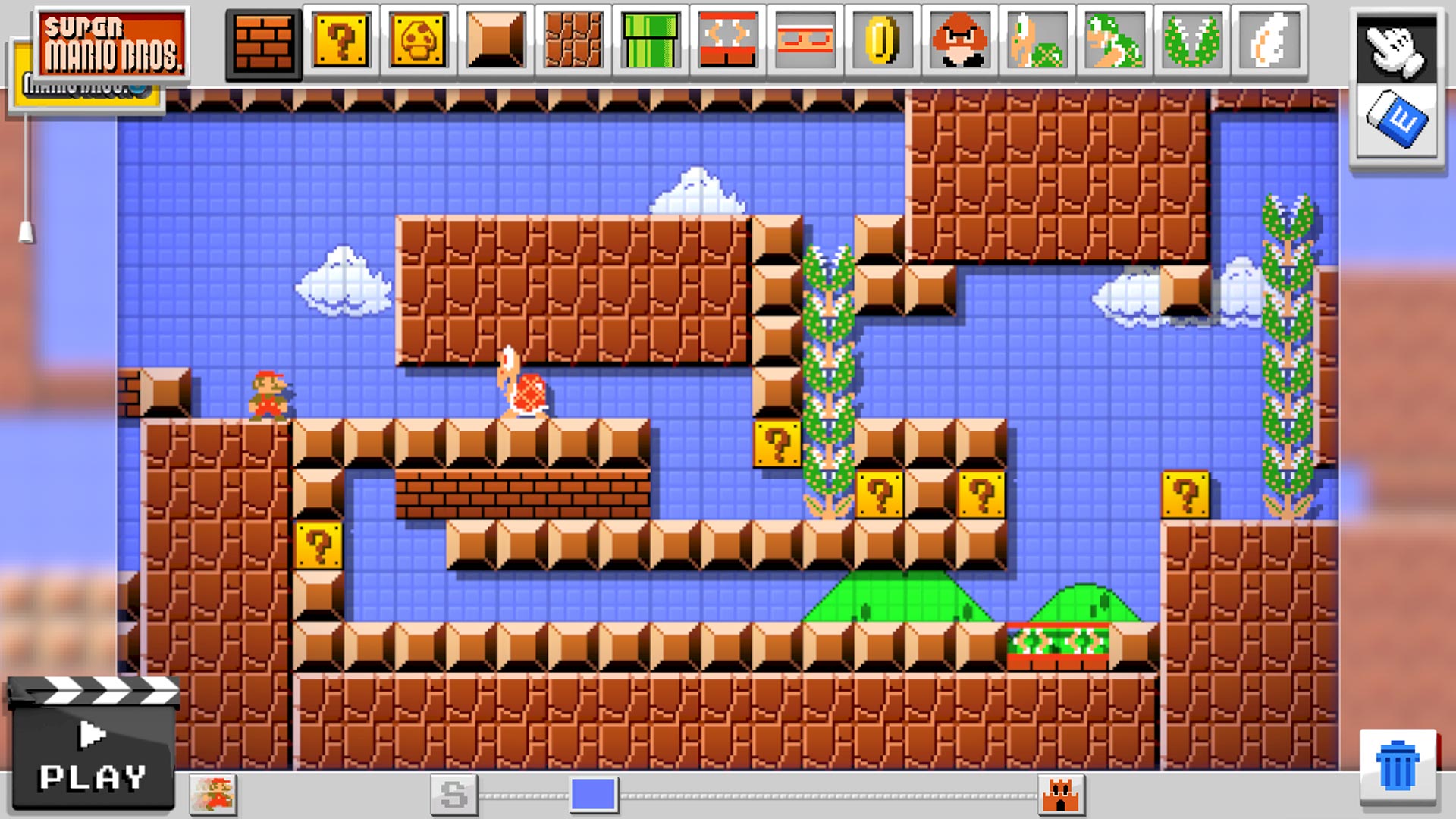
Its impossible to guess the NX’s level of success, or what the console will even be, but as brutal as the (probably swift) transition may be, the simple fact that it won’t be the Wii U surely gives Nintendo the opportunity for a rebooted reconsolidation of its own. It’ll be an odd time to make that new start, but hey. All Nintendo ever needs is one good idea to turn things around. Whatever that idea might be, against the backdrop of the newly confident and purposeful Microsoft and Sony, it’s going to make the next few years in gaming a vibrant and interesting time indeed.



